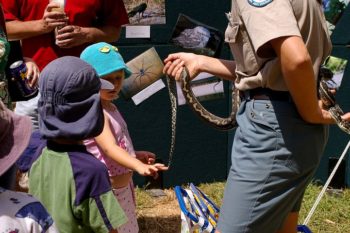 Partner With Your Children’s School
Partner With Your Children’s School
Participating parents typically report more satisfaction with the school’s staff and their children’s academic success. Parents with little or no access to the school tend to become frustrated when their children are not successful at school. These parents may not know how to adequately partner with the school’s staff to access the resources required for their children’s success.
When parents reach out to other non-participating parents, all students benefit from these outreach efforts. Most teachers will visit with students’ parents several times a year. Other teachers will travel to students’ homes to meet with parents who have never attended a school meeting or event. Non-participating parents may be afraid of the school because of a previous bad experience. Some may fear they have a language barrier because they may not be able to adequately communicate with staff. Other parents may be afraid of the school’s staff because of cultural differences.
Regardless of the reasons for the lack of communications between parents and the school, effective partnerships can be formed. Through these school-parent partnerships, parents will gain insight on each child’s needs to ensure effective academic support at home and access to additional community resources.
How to Partner with the Teacher
Parents have learned that forming an effective partnership with their children’s classroom teachers can help when addressing questions and concerns that may arise throughout the school year. Some children will feel challenged with the classroom management procedures. Others will become challenged with the grade level work and homework assignments. Many children will struggle with how to socialize with new classmates and teachers.
Check-in discussions with your children and briefly meeting with their teachers can have lasting effects on their abilities to success during the school per the following examples:
- Adjusting to classroom management procedures that can be reinforced at home to help your child’s success in the classroom
- Arranging for added academic support services for a child experiencing learning challenges or requiring remedial tutoring in a basic subject.
- Working with the teacher to help your child adapt to the teacher’s personality and classroom expectations
- Helping your child learn how to socialize with classmates at school and with afterschool and weekend playdates
Becoming a Parent Volunteer
When parents are able to volunteer in their children’s classroom, they gain insight in how their children are adjusting to the new school year. Parents are able to network and meet other parents and students for added support and socialization. When parents work at their children’s school, they are able to advocate effectively with teachers and staff because they have an established relationship and committed partnership with the school community. Parents can become successful advocates and coaches in partnership with their children when they:
- Meet with teachers formally and informally.
- Discuss their children’s academic strengths and challenges.
- Brainstorm solutions for academic growth.
- Create a student success plan with teachers.
- Check-in on a regular schedule as needed to resolve challenges.
- Identify added consequences at home or school for misbehaviors.
Creating a Partnership Plan for Success
Here is a case study about how Kyle’s parents resolved troubling reports about their son’s performance in his 8th grade English class.
|
Case Study of Kyle’s Need for Added Writing Tutorial Support in Middle School
Kyle was a gifted student. He had mastered basic writing skills as a preschooler and during his early years in elementary school. From the time he was three, Kyle would take his journal and dictate stories to his grandmother about scary monsters, life with his twin sisters, and how he would become an industrious construction business owner when he became an adult. During his elementary school years, he would enter writing contests at school and would win awards for creative writing and writing research narratives. Now he is an 8th grade student attempting to learn how to write his first research paper using the American Psychology Association’s (APA) style of writing to prepare for 9th grade Honors English classes. The basic APA rules of formatting, citation documentation, and reference requirements have paralyzed Kyle’s writing skills. He has lost his passion to complete a 20-page manuscript for his final middle school English project. His parents have coached him, guided him, encouraged him, and resorted to threatening restrictions if he does not complete this mandatory paper.
Finally, Kyle’s mom contacts his English teacher to strategize how they will coach and motivate Kyle to complete this final course requirement. The teacher asks Kyle to come to school with his mom to construct a plan of action. When they meet, his teacher listens attentively to Kyle’s concerns about completing the research paper correctly. She and Kyle brainstorm solutions. After further discussion, they agree that Kyle can write his paper without worrying about the research citations and stylistic requirements. He will need to highlight and number any research-based literature that he uses in his paper. Then he will duplicate the copyright page in each book used for a citation and number the book’s documentation with the corresponding citation number. Once he completes his paper, he will partner with peers to help him format the paper per APA stylistic requirements.
This agreed upon solution represented a victory for all without any power struggles, helicopter parenting, or tiger mama challenges. It also allowed Kyle the freedom to problem-solve a workable solution with his mother serving as a coach and facilitative supporter. Kyle was elated about his accomplishment of completing a successful final English writing project.
|


 Managing School Year Stress
Managing School Year Stress Getting Ready for the Next School Year
Getting Ready for the Next School Year Consider Your Children’s Needs for School Choice
Consider Your Children’s Needs for School Choice Which School Best Meets Your Needs?
Which School Best Meets Your Needs?